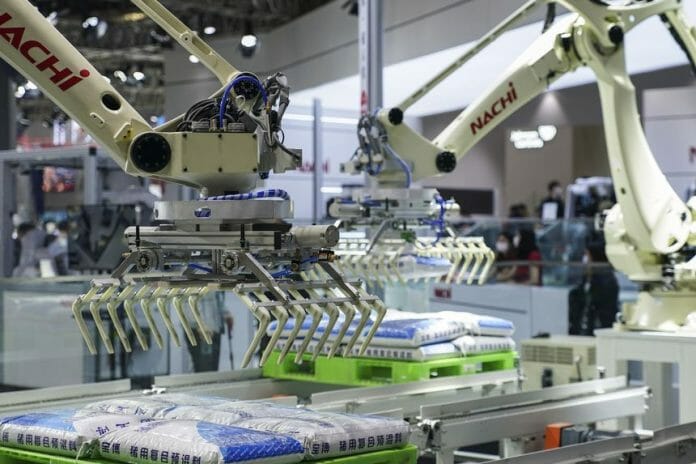Japan’s factory output rose for a second straight month in October, government data showed on Thursday, lifted by the production of integrated circuits and autos, although external demand risks loomed.
Industrial production rose 1.0 per cent in October from the previous month, data from the Ministry of Economy, Trade and Industry (METI) showed. The reading was roughly in line with a median market forecast for 0.8 per cent growth and followed 0.5 per cent gains in September.
Electronic parts and devices production climbed 6.6 per cent in October from the previous month, lifted by metal-oxide-semiconductor integrated circuits and hybrid integrated circuits.
Motor vehicle output also jumped 2.0 per cent month-on-month in October, thanks to strong sales of small passengers cars and trucks.
The production of ordinary passenger cars, though, decreased 4.0 per cent, weighed partly by disruptions at top automaker Toyota Motor, a METI official said.
Toyota suspended work at several group factories for parts of last month due to an accident at a supplier’s facility. However, the carmaker reported a 39.2 per cent rise in domestic production, crediting the increase to easing chip shortages.
Manufacturers surveyed by the industry ministry expect seasonally adjusted output to decrease 0.3 per cent in November and climb 3.2 per cent in December, sticking to its assessment on industrial outlook of “see-sawing”.
“While it’s positive that the impact of parts supply shortages is easing, production is likely to continue to see-saw as overseas economic conditions get severe,” said Masato Koike, economist at Sompo Institute Plus.
The impact of global interest rate rises on capital investment is affecting construction machinery in Europe, the METI official said.
Other data showed Japanese retail sales expanded 4.2 per cent in October from a year earlier, marking a 20th straight month of gains, but the pace was lower than the median market forecast for a 5.9 per cent increase.
Compared with the previous month, retail sales shrank 1.6 per cent in October, following a 0.4 per cent gain in September, squeezed by price pressures, Reuters reported.
However, the pace of consumer price hikes will significantly decelerate next year, according to a survey by market research firm Teikoku Databank released on Thursday, which showed a near 80 per cent decrease in food companies’ plans to raise prices in the coming year compared with the same period last year.
“Two years of the ‘food price hike rush’ will come to an end for now,” Teikoku Databank said in the report.









